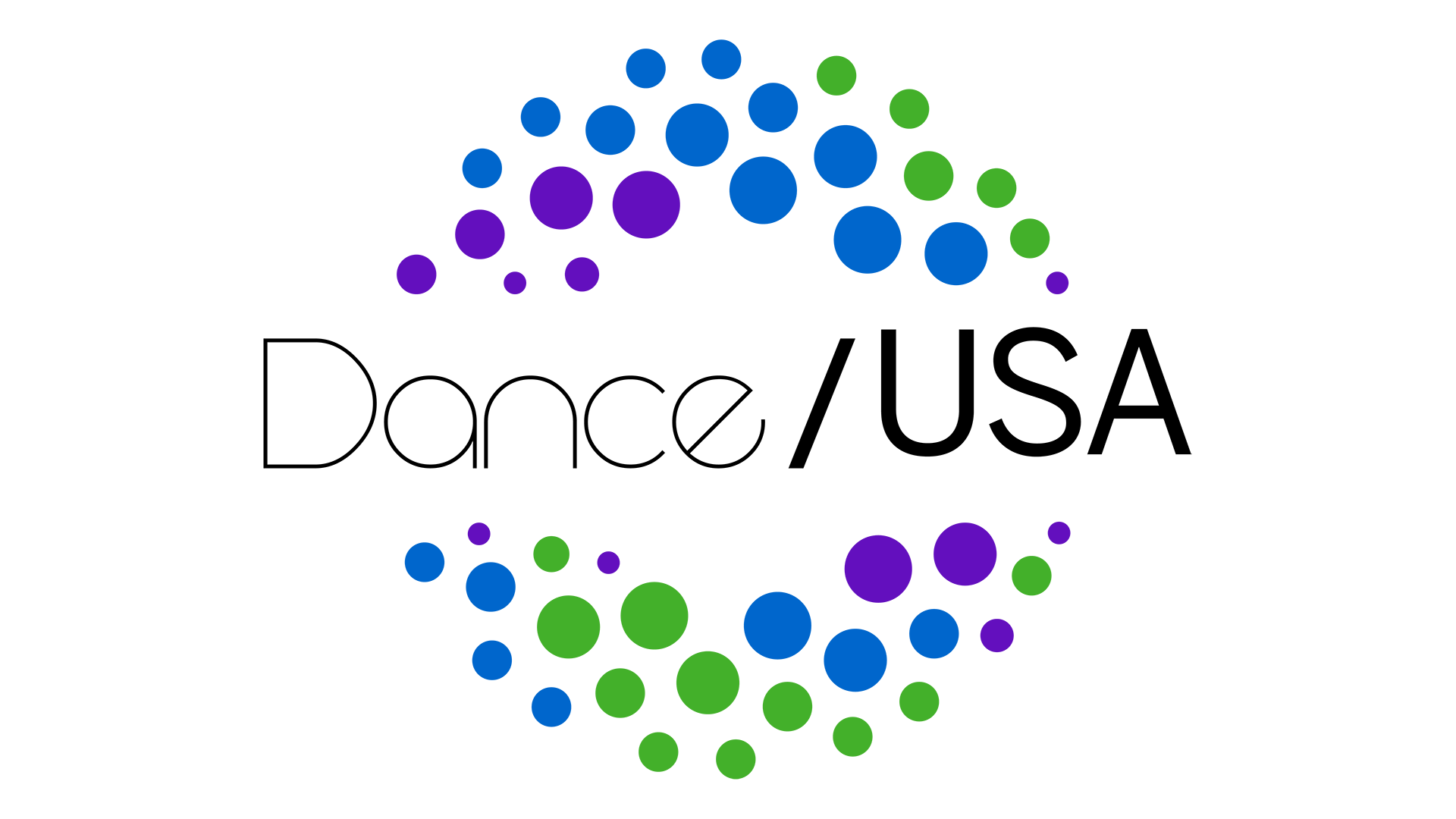Editorial note: This article was originally published Wednesday, July 13, 2011 by Christine Jowers who blogs as The Dance Enthusiast.
We Need Some Good Food and Balance. Dance/USA Introduces Pico Iyer.
Ruth Birnberg, director of the Boston Dance Alliance and trustee of Dance/USA, introduced us to Pico Iyer. In her opening comments, she spoke about the reasons dance professionals come to these conferences. Much of it has to do with the nuts and bolts of how to run our various arts organizations, learning new things, getting together with old friends, or networking to make new friends. What about nurturing our souls? More than ever in the arts, we dancers and dance administrators need some good spiritual food for sustenance – especially as the world pushes us to move ever faster in its service and sometimes, it seems, far away from the art we love. It is imperative to thrive despite many draining challenges that face us. It is important to find balance in our lives. Perhaps this non-dancing, busy, well-traveled, intelligent, and prolific writer’s observations about globalism, dance, and the future can give us some insight into creating balance and room in our lives. Look at all the work that he does, by the way. His list of accomplishments is daunting yet he’s still smiling, relaxed, and enjoying it all. He has found balance. What’s his secret?
The Dance World Through The Eyes of a Worldly Observer
Pico Iyer was born in England; his parents are Indian; he has lived in California; he was educated at Eton, Oxford, and Harvard. Now he lives in Japan, or maybe it’s better to say he lives mostly in Japan, as he continues to travel and live everywhere. He is a writer, an essayist, and a novelist. His book, The Open Road about the Dalai Lama, is a national bestseller. He is an incisive observer of our world, wonderfully eloquent, while charming and self-effacing. He kids us, as he opens his comments, that he is afraid we might focus on his small stature relative to the large podium in front of him instead of on what he is saying. What I notice is that he has made me feel very comfortable — at home. Maybe this is because he can make his home in so many places, or perhaps it is also that he has chosen to speak without a visual presentation, therefore allowing us to be still and leisurely drink in the meaning of every delicious word and inflection in his speech. (It is good to sit and listen without feeling the urge to catch the main points all the time.) His conversation flows from one culture to another: Bali, Japan, Nepal, California, New York and Cuba, and from one cultural reference to another: Van Morrison, Molière, the Kardashians, reality TV, Marshall McLuhan, The Sixth Sense, Billy Elliot, Balinese dance, Bruce Willis, Werner Herzog, Cuban social dance, and Michael Jackson’s “Thriller.” He is not a dancer, though his words and ideas dance magically, but he is extremely appreciative of what we do and deeply believes that we hold in our art form a transformative power that is very necessary to our world and its future. This gives him giant stature to me.
The Future Is Like a Porsche Being Driven by a Teenager
This Iyer analogy caused me to chuckle, and I paraphrase, “The future is like a Porsche being driven by a teenager on a winding, hilly road.” I am the mother of an almost teenager so this means something to me (as in, “Watch out, whoa, listen up.”) because I see very clearly in my son and in our world the unrelenting emphasis on acceleration, with no sign of slowing down. (What about food for my son’s soul? How will he be nourished? When will he find the time to eat?) There is a need for speed and immediacy, yet one wonders, are we really moving toward a destination? Is the constant barrage of information helping us or hindering us? Are we being numbed somehow? I noticed on the Chicago news this morning a report saying that peoples’ memories are becoming worse by relying on Google. The theory being that we really don’t have to pay attention anymore because we can always “find it” on the web. Later I am told by a colleague that almost the same thing was said about the written word in books. (Really?) I am not a Luddite but I am fighting the battle between loving my connectedness to “everything all the time” by way of email, Facebook, Twitter, Google, etc., and wanting to call the whole thing off because I think I am getting whiplash. Iyer says that in one day we are presented with more images than a person in Victorian England would have been presented with in a lifetime. How do we survive the onslaught of technology and retain our humanity?
Who Am I? Where Is My Home? Who Is My Tribe? Where Is My Center?
We live in a world with vast opportunities for exposure to other cultures. We can immediately access a country on the Internet. We most probably have lived in several different cultures in our lifetime and we can easily travel to places far from where we were born. In our lifetime, we may have multiple homes and jobs and multiple identities. Who we are is not as predetermined as it might have been for generations before us. It is an exciting period because of the proliferation of options from which to choose to craft an identity, yet, exactly because of these opportunities, it is easier than ever to lose one’s center. Hey, whoa, listen up, if you are in a Porsche being whipped about on a hilly road, the one thing you need to hold on to is your center. Maybe then you will have the presence of mind to tell the teenager to let you off, or let you take the wheel for a bit.
Pico Iyer on Home and Identity: Two Minutes with Words That Dance
Why Dance Is Necessary. The Good News.
The good news is that dance is a slow art and we shouldn’t let the fast pace of society make us feel less “cool” or relevant. There is no need to feel awkward or apologetic about our sense of time and history. We need to embrace the stillness we can offer to the world and do our best to share it effectively. We are needed. People are hungry for connection, for slowing down, for finding meaning amidst the “helpful” machines that spit out information. Dance is built for this. Iyer points out dance has always stood for culture in societies. “In a culture of fusion (as ours is and continues to become) dance can be the center of mingling, for it speaks to the deepest aspect of culture – universalism. Dance addresses a primal part of us that hasn’t yet started to think in terms of division. Dance speaks of something more,” Iyer reminds us: “surrender, transport, and transformation. It can carry us to a deeper, often unvisited part of ourselves.”
Next time you go for a walk in New York City (or your home town), notice the number of people carrying yoga mats on their backs. Witness firsthand the great need for surrender and transformation.
Now for the Not So Good News or The Golden Opportunity
After Iyer’s speech my colleague sitting one seat over from me, looked deeply in my eyes and said, and I paraphrase, “He spoke to us as if we are part of the world, not outsiders isolated in a studio.”
This feeling of being sequestered away from society is horrible, and very real for professional dancers. Many of us have been trained to be set apart from this world with our highly specialized diets, grueling exercise regimes, and with the inordinate amount of time we spend chasing perfection. We have been trained to be inaccessible. Of course we are part of the world. We are human and connected to all human beings. We eat, breathe, sleep, eliminate waste, have sex and search for meaning just like all other humans. We hold in our possession the magical use of our bodies. All humans share bodies. All humans move. Dance is a common language.
Is it that the world doesn’t get us? Is it that most people don’t care about the great high culture we have to offer because they would rather watch The Simpsons (I like to watch The Simpsons) or The Kardashians (not so fond of the face work there) or sports (love soccer)? Is it that the overburdened person feels excluded from our exclusive professional dance club, or mystified by the definitions of contemporary dance, modern dance, ballet, tap or folk? Is it that people have no idea who we are? How can we change this?
Many of us serious dancer types have interrupted our connection with the larger culture. We need to be reunited somehow. This has nothing to do with dumbing down what we do, or changing who we are essentially to fit the society. It has everything to do with broadening our horizons, by jumping out of our studios and offices to take a look at the great, big, cacophonous, speedy, multicultural world of fusion before us and realistically assessing our place in it. What is our dream for our art? Is it a realistic one? Where is our center? What can we offer? How can we take advantage of new methods of communication to help us? This doesn’t have to be a horrible chore that leads us away from art work. It can be an energizing invigorating experience. It can help us to feel balanced, appreciated, and part of the world again. This is an exciting time. Today, we are not only dancers and administrators but we are hosts, welcoming old friends and newcomers into our homes to be nourished by our work (once we are nourished ourselves, of course). We dancers have a golden opportunity to create a more meaningful, more relevant, more enjoyable, and less lonely world for all of us. I, for one, am enthused.
Christine Jowers founded The Dance Enthusiast in 2007 with web designer Will Arnold. The Dance Enthusiast is the web extension of the non-profit Moving Arts Projects, originally founded to create performance projects celebrating the powerful stories of dance history and individual dance artists. Jowers writes, edits, acts as videographer, and interviews artists. In addition to her web work, she performs, produces, and teaches. Prior to creating her own company, Jowers performed with Maryland Dance Theater, The Pittsburgh Dance Alloy, and The Doris Humphrey Repertory Company in New York.
____
We accept submissions on topics relevant to the field: advocacy, artistic issues, arts policy, community building, development, employment, engagement, touring, and other topics that deal with the business of dance. We cannot publish criticism, single-company season announcements, and single-company or single artist profiles. Additionally, we welcome feedback on articles. If you have a topic that you would like to see addressed or feedback, please contact communications@danceusa.org.
Disclaimer: Opinions expressed in guest posts do not necessarily represent the viewpoints of Dance/USA.


